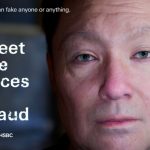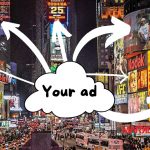The Facebook post boosts practice is, basically, all about throwing money down the drain
by Motor Industry Professional
In today’s market, it is critical to spend your advertising money wisely; especially with Facebook post boosts. There should be a return on investment or all you’re creating are losses which go straight down to hurting your bottom line. Print media is in a decline as we all know, and digital is the way to go. For your average low budget company, big digital marketing campaigns are out of the question, so what do you do? Turn to social media of course.
Anyone with a Facebook account and a Paypal account can access Facebook’s ‘Ad Manager’ and promote your page with it’s advertising tools. You can manage campaigns, set a bid strategy, a budget based on a cap, per clicks, impressions or engagement.
Over the years I’ve boosted numerous posts, and on pages for friends who didn’t have the know-how to get their page boosts going. What I’ve noticed is that you get likes from profiles which don’t seem real. These profiles have probably 1-6 pics, up to 30 friends and all of them seem to be from ASEAN countries but just aren’t Malaysian, and don’t look like people who’d have an interest in say, high performance engine oils, for example. Fake profiles seem to click like on page posts more than ANY other Facebook activity. That is, if they, in fact, have any other activities on Facebook at all.
I discovered I’m not the only one. According to The Next Web , Facebook page owners have complained about this problem publicly going back as far as 2014!
This rampant problem has been on-going for many years now. Of course, this Facebook post boosts fraud has come to light of late as Facebook is now making moves to remove these fake accounts and ‘like farmers’.
How these farms affect your Facebook page and campaigns are as listed below:
- Will waste your Facebook ad-budget money
- Won’t see an increase in sales as these fake accounts don’t buy ANYTHING
- Are going to experience a hit on page engagement and the like
- Cannot properly filter out and delete your page’s hundreds, if not thousands, of fake fans, leaving the page with distorted metrics
Initially, I had been very upset with Facebook, thinking how could any self-respecting company do such a thing? Turns out though, that Facebook isn’t the one creating these fake profiles, and most page owners did NOT intentionally pay for fake likes. These profiles appear in the thousands via ‘Click Farms’, the very parties that sell page likes to buyers.
In order to look legit, these fake profiles will go out and click ‘like’ on legit ads as well. This is why your perfectly legit Facebook page and ad campaign receives plenty of likes from fake profiles. This activity helps the fake profiles slip under Facebook’s fake profile spam filters. In addition, the fake profiles post gibberish comments and/or links to appear ‘human’.

What’s Facebook doing about it? It has shut down millions of duplicate, mis-classified and ‘undesirable’ accounts over the past five or more years, based on their annual reports. In 2012 Lady Gaga lost over 65,000 fake fans due to Facebook’s fake purge. Going by a Business Insider report, many other celebrities have been experiencing major reductions of fans on their pages; in 2019, this is still an on-going effort.
Ad agencies and marketing folks should be very, very careful with their digital ad spend. No one is big enough to continuously patrol and filter out fake profiles and likes. Just keep your eyes open and be very sensitive to fraud. As of January 2019, Facebook’s ad revenue is now over US$55b. Sadly in Malaysia, some advertisers have lost all or most of their ad-spend to fake profile likes. Until and unless proper authorities address this issue, you may want to consider other ways to reach your audience. Just don’t fully depend on Facebook post boosts.
This isn’t the only issue Facebook has to contend with as it also faces trouble with the US Senate, no thanks to a critical data breach. On the other end of the spectrum, advertisers also claim the social network giant isn’t truthful about its video metrics.
Text by: Victor Yap
MARKETING Magazine is not responsible for the content of external sites.









